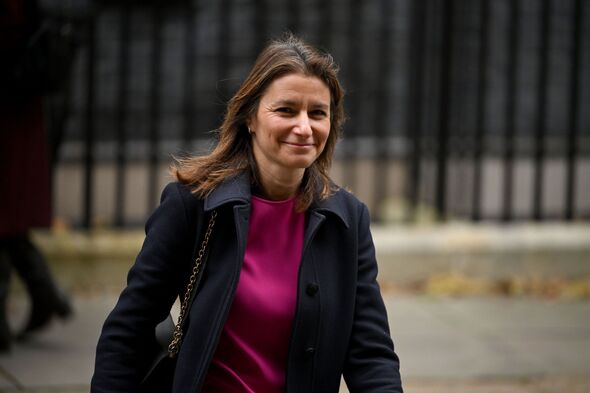BBC use of “criminal tools” under fire by minister over TV licence fee | Politics | News | Express.co.uk
Culture Secretary Lucy Frazer sets out an ambition to decriminalise non-payment of the licence fee.
Link copied Bookmark
Culture Secretary Lucy Frazer has taken aim at the BBC’s use of “criminal tools” to prosecute people who fail to pay their TV licence.
She said will look at the prosecutions in an upcoming review, Ms Frazer confirmed today.
When asked about a series of cases brought against people by TV licensing, she said: “I don’t think it’s appropriate for the BBC to have criminal tools in its armoury in relation to prosecutions.”
Asked whether she thought there would still be a licence fee enforced by the Government in 10 years time, she said: “It’s something that we need to look at and that’s why I’ve launched a review into the funding of the BBC.”
Our community members are treated to special offers, promotions, and adverts from us and our partners. You can check out at any time. More info
The Cabinet minister also said believes the BBC has “on occasion” been biased, adding that audience trust in the publicly-funded corporation’s impartiality is on a “downward trajectory”.
Ms Frazer told Sky News that “evidence” suggested there was a “perception amongst audiences” that there was some bias at the BBC.
When it was put to her that perceptions are not necessarily reality, Ms Frazer said: “There are only perceptions and perceptions are important.
“What’s important about the BBC is that it’s funded by the public, so the perception of audiences of the public are important.”
Asked whether she thinks the BBC is biased, Ms Frazer said: “I think that on occasions it has been biased”, citing its reporting of a hospital attack in Gaza.
Ms Frazer added: “We have seen audiences are feeling like impartiality in the BBC is on a downward trajectory. We have heard that 39 per cent of complaints last year were about impartiality when the previous year only 19 [per cent] were.”
Regulator Ofcom is to gain more powers over BBC online services, including the BBC News website, as part of a series of changes unveiled by the government.
Under the plans, the media regulator will be able to take enforcement action if articles do not meet relevant broadcast standards.
Prime Minister Rishi Sunak said impartiality is an “important tenet of our media industry”.
Speaking at the National Film and Television School in Beaconsfield, Buckinghamshire, he said: “I think all elements of the media industry have to be subject to the same impartiality rules. I think that’s what people would expect and that’s what makes our media institutions so great.
“We have a free and fair press and impartiality is at the heart of what makes the BBC a strong institution.”
Downing Street declined to say whether Mr Sunak believes the BBC is biased.
A BBC spokesperson said “no other organisation takes its commitment to impartiality more seriously”, and that the corporation has well-established plans to continue to improve standards.
They said: “We know this matters to audiences and the BBC continues to be the number one source for trusted news, with the highest scores for impartiality and accuracy.”
The spokesperson said the BBC was “operationally and editorially independent”, adding: “We remain committed to continuous improvement to ensure we deliver for all licence fee payers.”
Latest videos
Would you like to receive news notifications from Daily Express?


